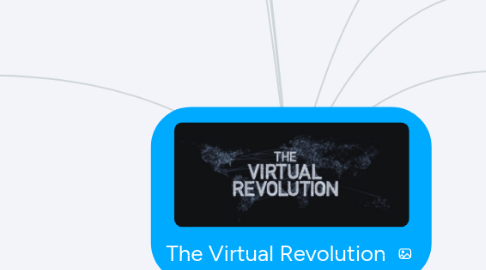
1. Following the movie
1.1. Part 1 : The great levelling
1.1.1. Afrika & Intro 0-3:55
1.1.2. The great levelling 5:52-7:25
1.1.3. Intro wikipedia 8:06-10:53
1.1.4. San Francisco in the 60's 10:54-12:20
1.1.5. World of online blogging (Ushahidi) 18:53-22:16
1.1.6. What is the Internet 22:17-28:04
1.1.7. All equal, no authority 29:22-32:20
1.1.8. The rise of giant 32:21-36:00
1.1.9. The battle of IE 36:00- 39:13
1.1.10. Problem with copyright start in music : napster (1999-2001) 39:13- 42:15
1.1.11. The Huffington Post 47:13-50:03
1.1.12. Cyberspace 50:55-53:12
1.1.13. Wikipedia 53:15-56:17
1.1.14. Conclusion 56:18
1.2. Part 2: Enemy of state
1.2.1. Introduction
1.2.2. Twitter 2:19-8:48
1.2.2.1. Tools change us.
1.2.3. Internet threatens state & origins 8:49-13:22
1.2.4. The root servers 13:23-16:59
1.2.5. Wikileaks 17:38-22:15
1.2.5.1. OVH & Wikileaks 2010
1.2.5.1.1. OVH attacked by justice
1.2.5.1.2. Justice approves OVH
1.2.6. Web and politics 28:50-29:59
1.2.7. China & Web 30:00-35:22
1.2.8. 50ct army 35:23-39:19
1.2.9. PayPal 39:20-43:43
1.2.10. Al Queda 43:44-46:43
1.2.11. Estonia (2007) 48:54-53:26
1.2.12. Estonia promising lead 53:27-55:40
1.2.13. Conclusion 55:41
1.3. Part 4 : The cost of free
1.4. Part 3 : Homo Interneticus
2. Introduction
2.1. Domains Internet is changing
2.1.1. Warefare
2.1.1.1. Cyberware
2.1.1.1.1. Killing is done remotely
2.1.2. Economics
2.1.2.1. Jeremy Rifkin
2.1.2.1.1. First Industrial Revolution >1650
2.1.2.1.2. Second Industrial Revolution >1850
2.1.2.1.3. Third Industrial revolution
2.1.2.2. Examples of collaborative economy
2.1.2.2.1. Air BnB
2.1.2.2.2. Uber
2.1.3. Medicine
2.1.3.1. Will the doctor be replaced by an app ?
2.1.4. Communication
2.1.4.1. Social Networks
2.1.4.1.1. BBS
2.1.4.1.2. Forums
2.1.4.1.3. FaceBook & LinkedIn
2.1.5. Information Industry
2.1.5.1. Paper is finished
2.1.5.2. Publicity about paper and Ipad
2.1.6. Financial world
2.1.6.1. Modern banks can’t exist without computers and a network
2.1.6.1.1. 30% of employees are computers specialists
2.1.6.1.2. Paypal
2.1.7. Culture
2.1.7.1. Amusement is getting virtual
2.1.7.2. Music Industry
2.1.7.2.1. iTunes & Spotify
2.1.8. Knowledge & Education
2.1.8.1. Education
2.1.8.2. Research
2.1.9. Law
2.1.9.1. Notion of property
2.1.9.1.1. ACTA
2.1.9.2. Notion of privacy
2.1.9.2.1. The right to forget
2.1.9.3. Difference National and International Law
2.1.10. Technology
2.1.10.1. We are moving to the Internet of Things
2.1.11. Psychology
2.1.11.1. Digital Natives
2.1.11.1.1. Y Generation
2.1.11.2. Associative thinking is becoming more dominant
2.1.12. Politics
2.1.12.1. President Obama was elected thanks to funding through social networks
2.2. Persons to know
2.2.1. Sir Tim Berners Lee
2.2.1.1. Inventor of the web
2.2.2. Bill Gates
2.2.2.1. Founder of Microsoft inc.
2.2.3. Steve Wozniak
2.2.3.1. Co-founder of Apple Inc.
2.2.4. Al Gore
2.2.4.1. Former Vice President of the US
2.2.5. Mark Zuckerberg
2.2.5.1. Co-founder of FaceBook
2.2.6. Steven Fry
2.2.6.1. English comedian, actor, writer, presenter, and activist.
2.2.7. John Perry Barlow
2.2.7.1. Founding member of the Electronic Frontier Foundation (EFF)
2.2.8. Shawn & John Fanning
2.2.8.1. Co-founder of napster
2.2.9. Ariana Huffington
2.2.9.1. Founder of the Huffington Post
2.2.10. Jimmy Wales
2.2.10.1. Founder of Wikipedia
2.2.11. Jeff Bezos
2.2.11.1. Founder of Amazon
2.2.12. Biz Stone
2.2.12.1. Founder of Twitter
2.2.13. Vincent Cerf
2.2.13.1. Co-inventor of the Internet
2.2.14. Clay Shirky
2.2.14.1. an American writer, consultant and teacher on the social and economic effects of Internet technologies
2.2.15. John Gilmore
2.2.15.1. "The Net interprets censorship as damage and routes around it."
2.2.16. Peter Thiel & Elon Musk
2.2.16.1. Founders of PayPal
2.2.17. Al Queda
2.3. Sites to visit
2.3.1. Twitter
2.3.2. Amazon
2.3.3. Wikipedia
2.3.4. PayPal
2.3.5. Verizon
2.3.6. Ushahidi
2.3.7. Napster
3. I have a story to tell
3.1. Alphanumeric Writing is invented
3.1.1. 4000 BC - 3000 BC Sumarian writing system
3.2. Man invented paper
3.2.1. In China around 206 BC – 220 AD
3.3. Gutenberg invented printing
3.3.1. The paper mill was invented after 1400
3.3.2. The effect of printing was generalised education
3.3.3. Transformation of the role of teacher and student
3.4. Inventions of modern Times
3.4.1. Invention of Electricity
3.4.1.1. 1752 Benjamin Franklin
3.4.1.2. 1869 Zenobe Gramme
3.4.1.3. 1878 Thomas Edison
3.4.2. Telephone &Telegraph
3.4.2.1. 1870 Graham Bell
3.4.3. Computational machines
3.4.3.1. 1936 Alan Turing
3.5. Invention World Wide Web
3.5.1. 1983 TCP/IP
3.5.2. 1990 Sir Tim Berners Lee
3.6. Moving to a knowledge society
3.6.1. The knowledge era
3.6.1.1. There is no knowledge that is not power.
3.6.1.1.1. Thomas Emerson
3.6.1.1.2. Mortal Kombat
3.6.1.1.3. Some quotes
3.6.1.2. The American economy is a knowledge economy
3.6.2. the end of (post-) Modern Times from 16 to 20 century
3.6.2.1. Middle Ages from 6 to 15 century
3.6.3. Switch of Paradigm (Kuhn)
3.6.3.1. Middle Ages
3.6.3.1.1. Blood was power
3.6.3.2. Modern Times
3.6.3.2.1. Money was power, a classic capitalism of the Industrial Age
3.6.3.3. New Era
3.6.3.3.1. Knowledge is power, a new capitalism
3.6.4. It is easier to hack than to secure
3.6.4.1. It takes 10x less time
3.7. Two film extracts
3.7.1. Die hard 4 (2007)
3.7.2. Skyfall (2012)
3.7.3. Hatsune Miku (2011)
3.7.3.1. Hologram singer in Japan
4. To start with
4.1. What happened in 1990
5. Objectives of the course
5.1. Are we living a changement of paradigm ?
5.2. What is the Internet ?
5.3. How is the Internet functioning ?
5.4. What are the forces at work in the Internet ?
6. Link to Twitter
7. Link to Pearltrees
8. Who am I ?
8.1. Origins
8.1.1. Dutch Nationality
8.1.2. In Belgium since 1989
8.1.3. Speaking Dutch, English, French, German
8.2. Degrees
8.2.1. Master in computational linguistics & pragmatics - Leuven
8.2.2. Master of Philosophy - Cambridge
8.2.3. Master in Management - Liège
8.3. Fields of research
8.3.1. E-learning
8.3.2. Communication in theology, philosophy & language
8.4. Working at Henallux
8.4.1. University College at Liege - Namur - Luxembourg
